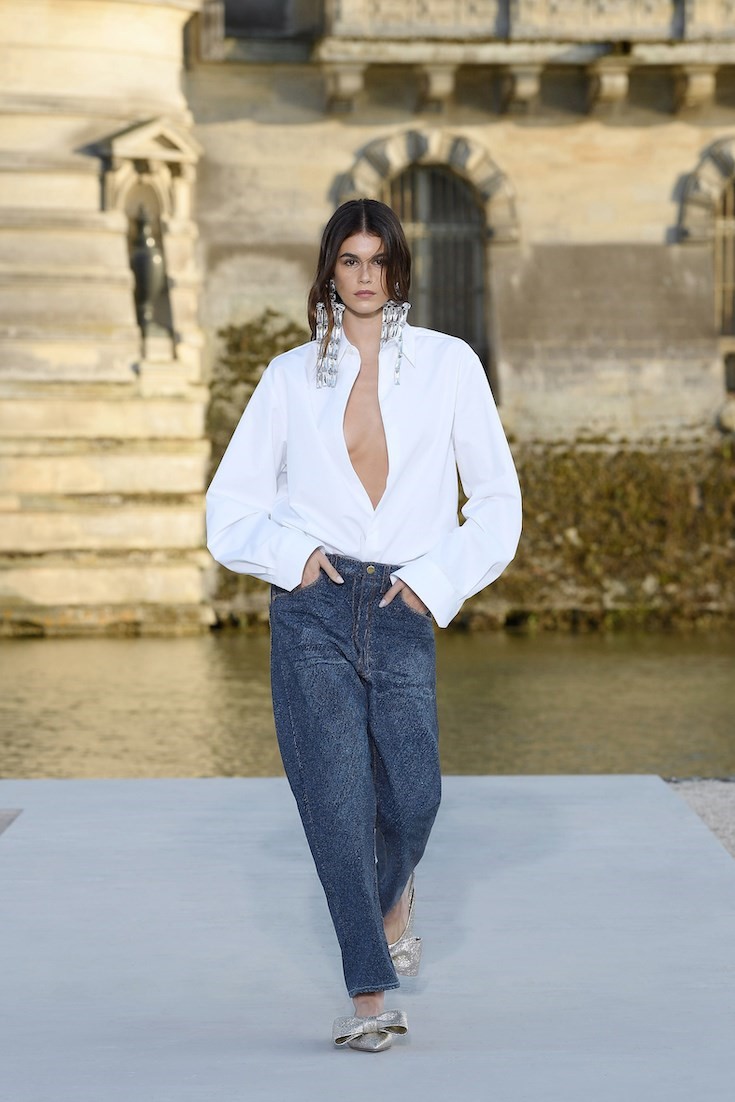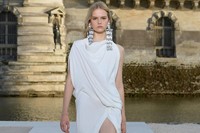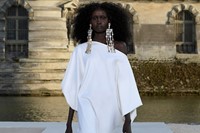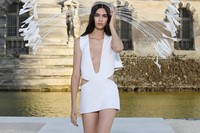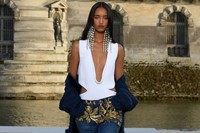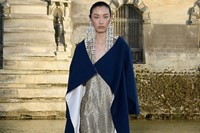A château is a pretty loaded symbol, especially in France – the one at Versailles, after all, was stormed by the people in toppling an absolute monarchy, a potent emblem of nobility, elitism and status. And châteaux are kind of the natural home of haute couture, and its clients, an art form lumbered with much the same baggage, associated with a lifestyle that seems hopelessly out of date. That’s something Pierpaolo Piccioli has always wanted to combat, with his work at Valentino – championing the craft and humanity of haute couture, its deeper meaning, but fighting our prejudices of couture as the plaything of the rich and privileged.
That’s why, paradoxically, he chose to show in the Château de Chantilly, a 19th-century edifice built on the razed remains of an earlier building, destroyed in the revolution. Or rather, Piccioli paraded his Autumn/Winter 2023 Valentino haute couture show before the château, across its parterre, the turreted castle forming a picture-book backdrop. But despite that history, the château itself wasn’t chosen for its locale or backstory – it was a universal sign, a mnemonic device. Not ‘the’ château, but ‘un’ château, in Piccioli’s words – not a building, per se, but rather a great big reminder of what elitism looked like in the past. Here, today, the models symbolically broke free, walking out.
And the first look was a pair of jeans. Or rather, something that looked like jeans – in actual fact a masterpiece of couture embroidery with indigo-dyed beads creating a mirage of jeans, a white shirt tucked in above. As signifiers – like that castle – they had an immediate impact. But the closer you looked, the more complex they became, and the more the mind boggled. That was an overarching theme of this Valentino show, where Piccioli stripped back his silhouettes and embellishment to something pure, spontaneous. Although, of course, this was the kind of spontaneity only possible with a skilled atelier and decades of expertise – like an easy dress, almost a piece of fabric hastily thrown, twisted on the body, its movements apparently frozen in free-fall.
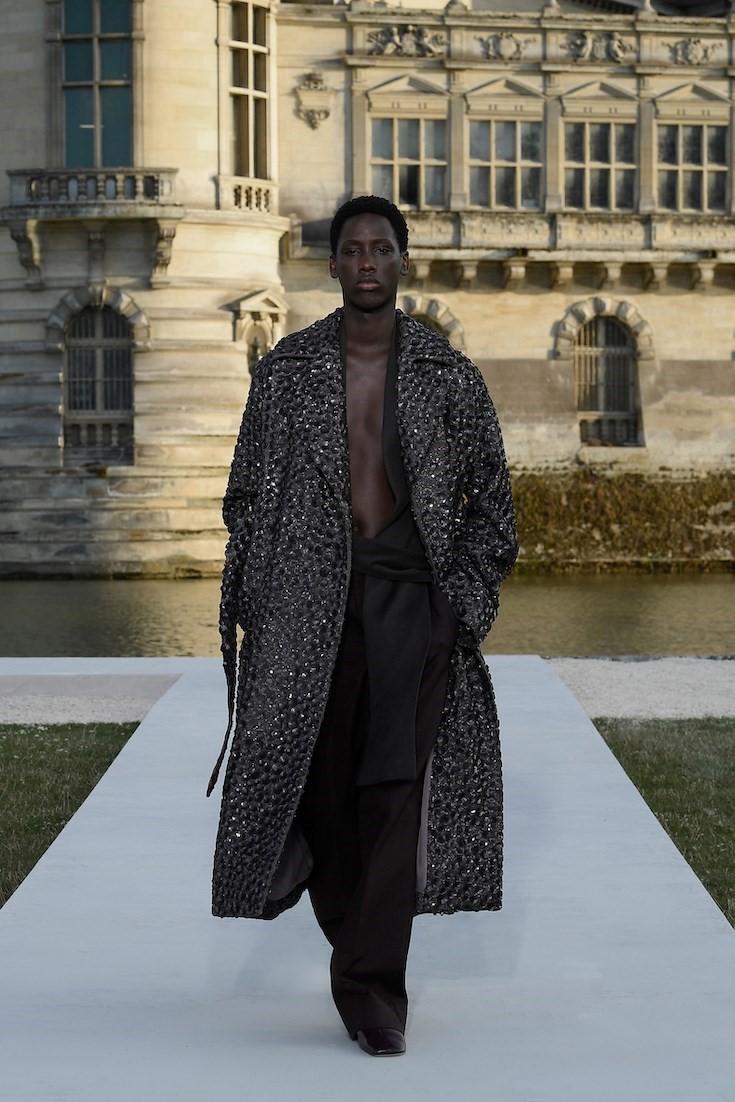
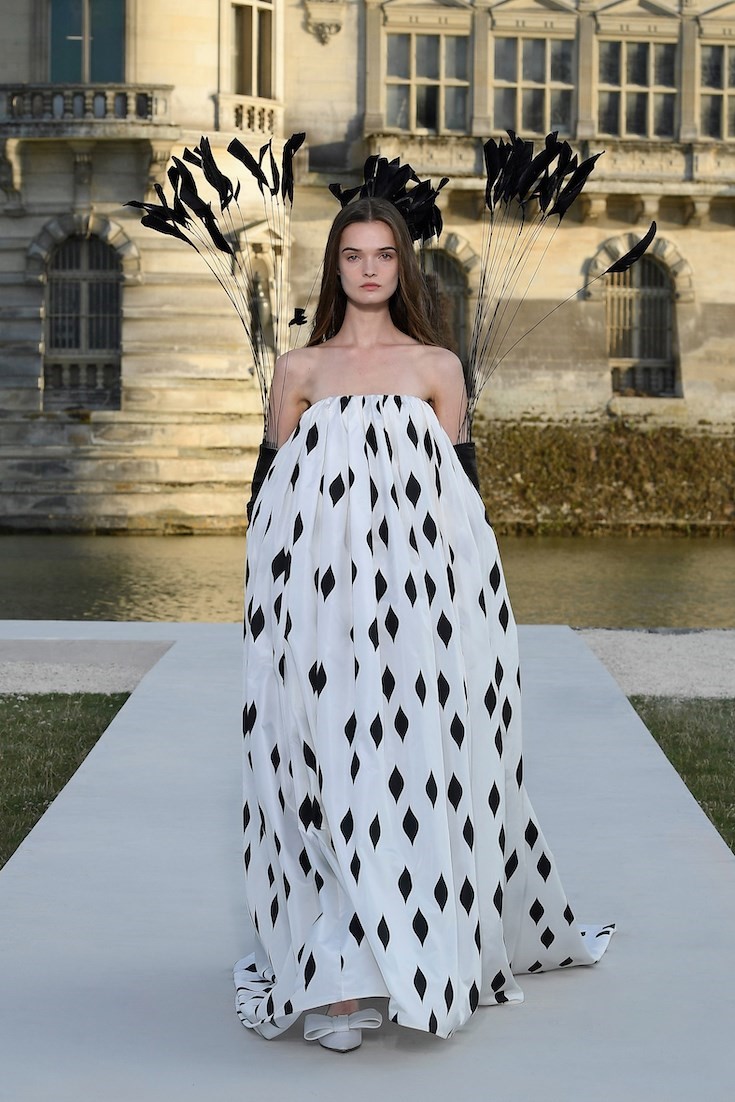
Of course, those gowns in this Valentino show were actually masterpieces of pattern cutting and the couture art of moulage, or hand-draping, painstakingly engineered. Another was hand-knitted with sequins – “liquid porcelain” were Piccioli’s words – and a third based on a white dress, cut in cashmere and mounted on an internal corset. “Extravagant simplicity” was the contradiction he coined, a neat catch-all phrase for dresses with patterns that seemed to abstract baroque swirls of decoration into sweeps of pure renaissance colour, inlaid into the fabric of the dresses themselves.
There were also a few old-school references: an ‘ermine’ wrap of faux fur prickled with coq feathers, wrapped around an emerald-green evening gown, gestures like cascading crystal earrings and gloves and headpieces sprouting elaborate feathers like water jetting from fountains, or long robes in crimson or silver, worn with sweatshirt ease.
This collection wasn’t about deflating the pomp that couture is often saddled with – it did that, of course, making it real and relatable, down to earth. Piccioli asserted this collection wasn’t about princess dressing, or dressing princesses – although of course it will do that. But more fascinating was its process of elevation, of rendering the everyday special and precious – alongside those extraordinary trompe l’oeil jeans, a pair of classic vintage 501s were embroidered with arabesques of gold thread. The kind of clothes a modern princess may wear, when escaping a turreted castle herself and standing on her own two feet.
